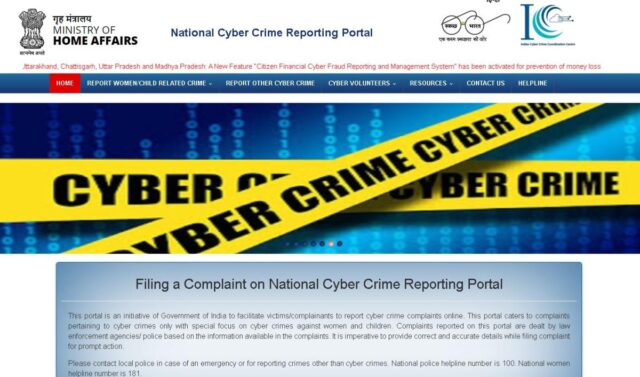As years have gone by, the internet has taken over the world, making it impossible for people to live without it. With its rising importance, it has become even more essential for internet users to be well aware of the dangers associated with using it. But, why is it essential to know the Indian cyber laws?
These cyber laws focus on tackling computer crimes related to electronic transactions, cyberbullying, data protection, and much more. Knowledge about these laws could help during unfavorable situations where you find yourself a victim of a violation in cyberspace.
So, here is a breakdown of cyber laws in India to help you navigate through the internet in a safe and protected manner.
The Information Technology Act 2000
The growing need to regulate the use of the internet led to the implementation of the Information Technology Act, 2000, also known as the Indian Cyber Act or the Internet Law. The IT Act is the primary law in place to handle issues of cybercrimes in India.
Here are some important sections of the law that regular users of the internet should know:
1. Related to tampering with computer source documents
Section 65 – A person who intentionally conceals, destroys, or alters any computer source code (such as programs, computer commands, design, and layout) when it is required to be maintained by law commits an offense and can be punished with three years’ imprisonment or a fine of 2 Lakhs INR or both.
2. Using passwords/digital signature of another person
Section 66 – If a person fraudulently uses the password, digital signature or other unique identification of another person, he/she can face imprisonment up to 3 years or/and a fine of 1 Lakh INR.
Read More: Decoding The New Information Technology Rules 2021: A Step Towards Regulating Social Media And OTT Platforms
3. Publishing private images of others
Section 66E – If a person captures, transmits, or publishes images of a person’s private parts without his/her consent or knowledge, the person is entitled to imprisonment up to 3 years of fine up to 2 Lakhs INR or both.
4. Publishing child porn or predating children online
Section 67 – If a person captures, publishes, or transmits images of a child in a sexually explicit act or induces anyone under the age of 18 into a sexual act, then the person can face imprisonment up to 7 years or a fine of up to 10 lakhs INR or both
5. Receiving stolen computer or communication device
Section 66 B – A person receives or retains a computer resource or communication device known to be stolen, or the person has reason to believe it is stolen. The person can face imprisonment up to three years, or/and with a fine of up to ₹100,000
6. Publishing offensive, false or threatening information
Section 66 A – Any person who sends by any means of a computer resource any information that is grossly offensive or has a menacing character; or any information which he knows to be false, but for the purpose of causing annoyance, inconvenience, danger, obstruction, insult shall be punishable with imprisonment for a term which may extend to three years and with fine.
Some other laws that entail cybersecurity in India include The Indian Penal Code of 1860, which enforces punishment on those who commit any crime in cyberspace, and The Companies Act 2014, ensuring that all digital records and security systems of companies are kept tight and sealed to avoid tampering.
How To Report Cyber Crime In India
To report cybercrime in India, you can use any of the following methods:
- Filing a complaint in your nearest/any Cyber cell.
- Lodging an FIR in a police station.
- Filing a complaint at https://cybercrime.gov.in/Accept.aspx

Measures To Help Protect Yourself On The Internet
- Do not trust unverified links that could potentially install tracking devices on your device. Make it a point to update your phone’s software regularly.
- Manage your social media accounts safely, keeping in mind that companies may have access to the information you put online.
- Turn off cookie tracking on browsers to ensure greater protection of your privacy. Also, ensure that you don’t unnecessarily provide access to your location to unknown sites.
- Be wary of the seller’s ratings and customers’ feedback on e-commerce websites and ensure that you do not provide personal information to unknown sites.
Do remember that while these laws are in place to protect us against any violation of our rights online, it remains our responsibility as users of the internet to remain vigilant and cautious of our activities in the digital domain.
Sources: Information Security Awareness, Youth Ki Awaaz, Forbes
Image Credits: Google Images
Find the Blogger: @MalavikaMenon28
This post is tagged under: indian cyber laws, indian cyber laws, cybersecurity, social media platforms, safety on the internet, privacy concerns, data protection, how to report cybercrime in India, cyber crimes in India, laws against cybercrime in India, Information Technology Act 2000, Companies Act 2014, The Indian Penal Code of 1860, measures to protect yourself online, e-commerce websites, personal information, cyberbullying, unverified information, unverified sellers, unknown websites, a guide to cyber laws, reporting cybercrime in India, cyber cells, digital laws, internet laws, internet hacking, protection on the internet, tracking devices, false information, password protection, computers, lost computers, privacy
Other Recommendations:






























